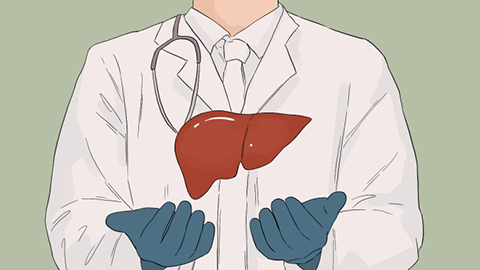How to treat hepatic decompensation
Generally, hepatic decompensation may be caused by long-term excessive alcohol consumption, malnutrition, viral hepatitis, cholestatic liver disease, cirrhosis, and other factors. It is recommended to seek timely medical attention to determine the underlying cause and, under a physician's guidance, improve the condition through general treatment, medication, or surgical interventions. A detailed analysis is as follows:

1. Long-term excessive alcohol consumption: Continuous alcohol-induced injury to liver cells leads to hepatocyte necrosis and gradual deterioration of liver function until decompensation occurs. Immediate cessation of alcohol consumption is necessary, avoiding any food or medication containing alcohol. Increasing intake of high-quality protein and vitamins in the diet can aid in liver cell repair.
2. Malnutrition: Prolonged deficiency of nutrients such as protein and vitamins results in decreased synthetic function of liver cells, worsening liver damage. Adjust the diet to ensure sufficient daily intake of high-quality protein and fresh fruits and vegetables, while avoiding high-fat and high-sugar diets to reduce the metabolic burden on the liver.
3. Viral hepatitis: Continuous replication of hepatitis viruses damages liver cells, progressively leading to hepatic decompensation. Patients should follow medical advice to use antiviral medications such as entecavir tablets, tenofovir disoproxil fumarate tablets, or lamivudine tablets to suppress viral replication.
4. Cholestatic liver disease: Obstruction of bile excretion leads to bile acid accumulation and liver cell injury, triggering hepatic decompensation. If the cholestasis is caused by biliary obstruction, biliary stent placement can be performed to relieve the obstruction and restore normal bile drainage pathways.
5. Cirrhosis: Extensive fibrosis of liver cells and destruction of normal liver tissue lead to hepatic decompensation, accompanied by symptoms such as ascites and jaundice. In addition to liver-protecting treatments, diuretic medications such as spironolactone tablets and furosemide tablets are needed to reduce ascites. Albumin infusion may also be necessary to increase colloid osmotic pressure when required.
Daily routines should include maintaining regular sleep patterns and avoiding late nights and excessive fatigue; strictly following medical instructions for medication and avoiding self-administration of drugs that may harm the liver; and regular follow-up assessments of liver function and liver ultrasound to monitor disease progression, adjust treatment plans timely, and preserve residual liver function.




